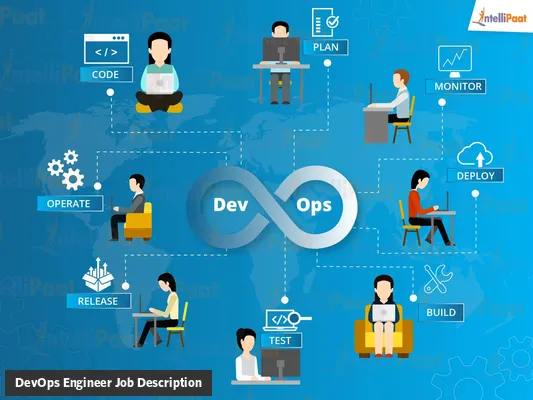DevOps Engineer Job Description Template
Use this DevOps Engineer job description template to advertise the open roles for free using Longlist.io. You can use this template as a starting point, modify the requirements according the needs of your organization or the client you are hiring for.

Job Brief
We are looking for a DevOps Engineer to help us build functional systems that improve customer experience.
DevOps Engineer responsibilities include deploying product updates, identifying production issues and implementing integrations that meet customer needs. If you have a solid background in software engineering and are familiar with Ruby or Python, we’d like to meet you.
Ultimately, you will execute and automate operational processes fast, accurately and securely.
Responsibilities
- Implement integrations requested by customers
- Deploy updates and fixes
- Provide Level 2 technical support
- Build tools to reduce occurrences of errors and improve customer experience
- Develop software to integrate with internal back-end systems
- Perform root cause analysis for production errors
- Investigate and resolve technical issues
- Develop scripts to automate visualization
- Design procedures for system troubleshooting and maintenance
Requirements
- Work experience as a DevOps Engineer or similar software engineering role
- Good knowledge of Ruby or Python
- Working knowledge of databases and SQL
- Problem-solving attitude
- Team spirit
- BSc in Computer Science, Engineering or relevant field
What does DevOps Engineer do?
A DevOps Engineer's day-to-day responsibilities can vary depending on the organization and team. However, some common tasks include:
-
Collaborating with development and operations teams: DevOps Engineers bridge the gap between the development and operations teams and work to establish effective communication and collaboration between them.
-
Building and maintaining Continuous Integration/Continuous Delivery (CI/CD) pipelines: DevOps Engineers automate software build, test, and deployment processes by setting up and maintaining CI/CD pipelines. This includes configuring tools like Jenkins, GitLab CI/CD, or Travis CI, and creating automated tests and deployments.
-
Infrastructure provisioning and management: DevOps Engineers work with infrastructure-as-code tools like Terraform or AWS CloudFormation to automate the provisioning and management of infrastructure resources such as servers, networking, and storage.
-
Monitoring and log management: DevOps Engineers set up and configure monitoring tools like Prometheus, Grafana, or Nagios to collect and analyze system metrics and logs. They ensure the availability, performance, and security of applications by monitoring and responding to alerts or incidents.
-
Troubleshooting and resolving production incidents: DevOps Engineers aid in identifying and troubleshooting issues in production environments and work with cross-functional teams to implement solutions promptly.
-
Security and compliance: DevOps Engineers implement security best practices throughout the development and deployment processes. This includes managing access controls, ensuring compliance with security standards, and performing vulnerability assessments.
-
Automating repetitive tasks: DevOps Engineers automate repetitive tasks, such as software deployments, database backups, and log rotations, to improve efficiency and reduce human error.
-
Researching and implementing new tools and technologies: DevOps Engineers keep themselves updated with the latest tools, technologies, and industry trends. They evaluate and test new tools and technologies, seeking opportunities to improve the development and operations processes.
-
Collaboration with other teams: DevOps Engineers collaborate with various teams, such as development, QA, and support, to ensure smooth workflow processes, handle deployments, and resolve issues.
Overall, a DevOps Engineer's goal is to streamline the software development lifecycle, improve reliability, increase efficiency, and enable rapid and frequent software releases.
